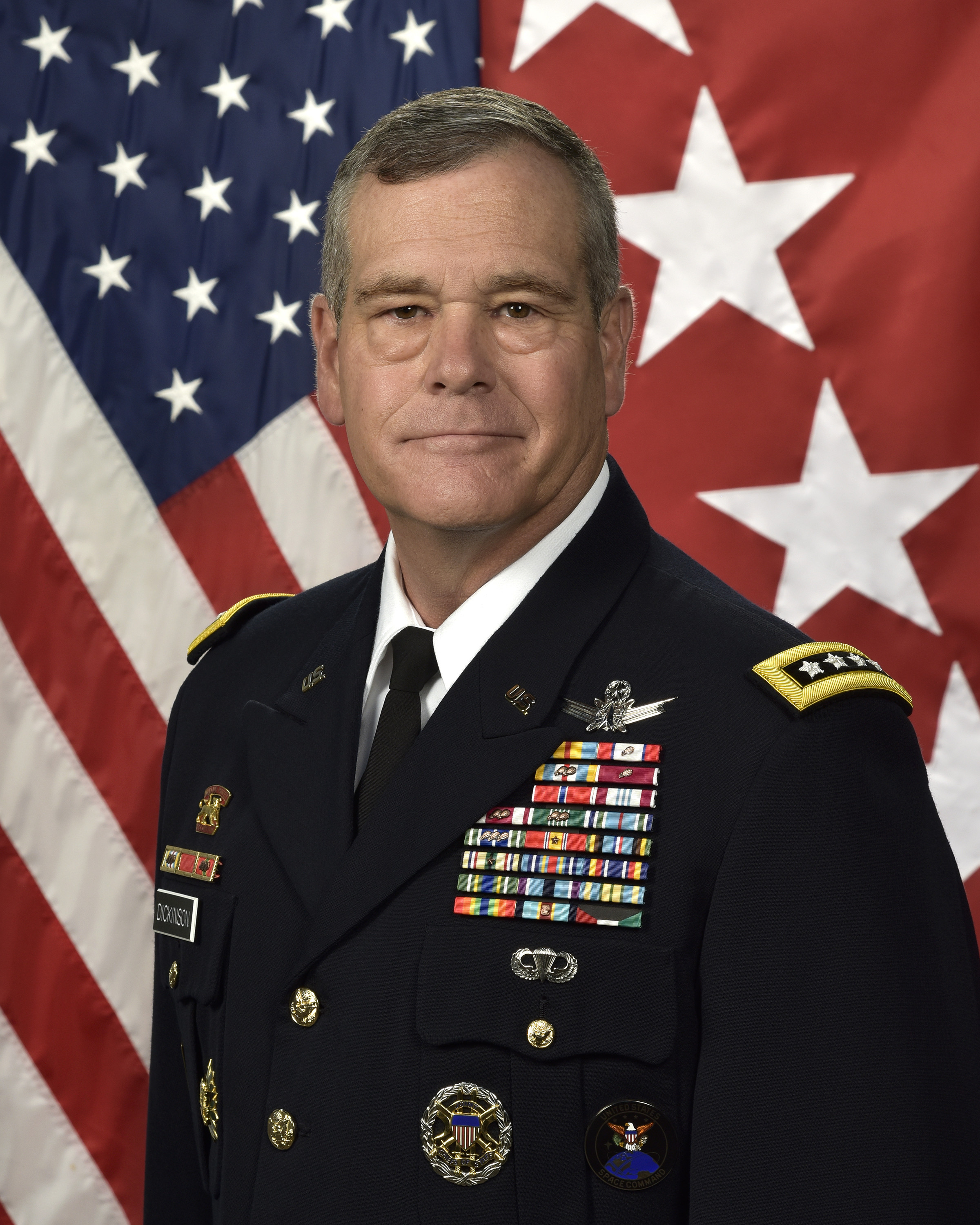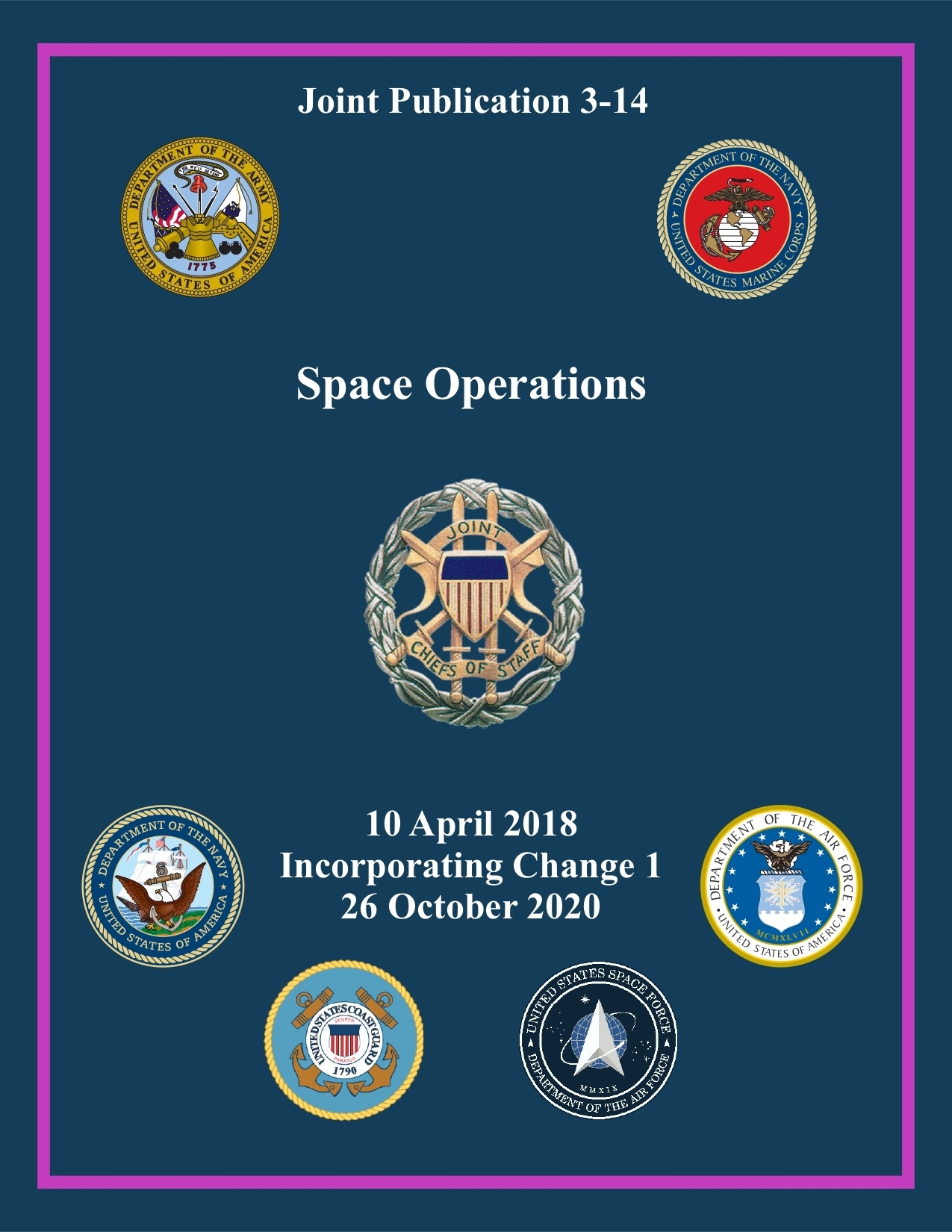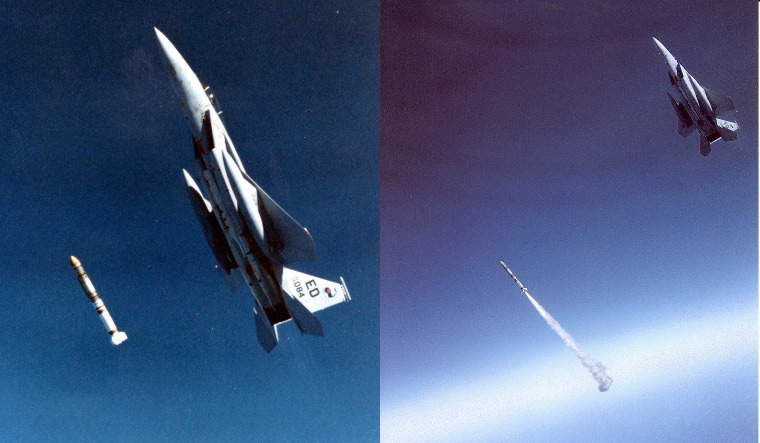
오늘 CD에 있는 자료들을 하드로 옮기는 작업을 하고 있습니다. 그런데 작업시간은 오래 걸리고 그냥 냅둘수도 없지만, 뭔가 멀티태스킹을 할 수 있는 그런 기묘한 상황에 처하게 되었습니다. 그래서 <오..누네띠네>나 써보려합니다.
본래 한중 외교장관의 전화통화에 대해서 이야기를 써보려했는데 딱히 영양가는 없어보였습니다. 주목할 점은 박진 외교부장관이 왕이 외교부장에게 북한 문제에 대하여 중국의 역할을 요구했지만, 이전에 11월 14일자 미중 정상회담에서 볼 수 없었듯이 중국은 북한문제에 대하여 관여의 뜻을 밝히지 않고 있지요.
https://cafe.daum.net/shogun/OCbn/524
-----
그래서 그동안 못보던 미 국무부 브리핑들을 둘러보다가 12월 8일자로 미 우주군 사령관의 공개화상 언론 브리핑이 눈에 띄었습니다. 마침 어제 우리나라 오산AB에서 주한 미 우주군이 창설되었으니 기묘하게 타이밍이 잘 맞는거 같기도 합니다.
전체 원문을 옮기고 번역까지 붙이기에는 시간이 너무 걸려서 눈에 띄는 부분만 간략하게 옮겨올까 합니다.

MODERATOR: Greetings to everyone from the U.S. Department of State’s Asia Pacific Media Hub. I would like to welcome our participants dialing in from the Asia Pacific region and around the world for this on-the-record briefing with U.S. Army General James H. Dickinson, Commander of the U.S. Space Command, the 11th and newest unified combatant command.
General Dickinson will discuss his recent travel to the Indo-Pacific to meet with allies and partners to advance collaboration and information-sharing on space security topics. He will take questions from participating journalists.
I’ll now turn it over to General Dickinson for his opening remarks. Sir, the floor is yours.
GENERAL DICKINSON: Well, thank you, Katie, and thanks to everybody for dialing in to participate in today’s call from, quite frankly, across the globe.
So today I’m calling in from Hawaii(* 우주군 사령부가 하와이에 있음. 당연히 인도-태평양 전역을 관장하는 지역). I just spent the last several days in New Zealand participating in the Combined Space Operations Principals Board, an annual event that, quite frankly, brings us together – brings together counterparts from Australia, Canada, France, Germany, New Zealand, and the United Kingdom and, of course, the United States, with a focus, quite frankly, on advancing collaboration and information-sharing on space security topics.
So we know is that allied integration serves to provide a safe, sustainable, and secure space domain for all of us, and it’s certainly not a new topic for any of us, but a topic that’s becoming ever more important and critical for our global way of life. So a secure space domain really underpins all instruments of national power. Nations around the world share in the benefits and costs of human activity beyond our planet, and, quite frankly, I think we can agree that it’s very exciting what we’re seeing today in the civil and commercial space markets.
For me personally, this is my first visit to the country, though my second trip to the Pacific region in this calendar year alone, having traveled and met with my counterparts in Australia, Japan, and the Republic of Korea earlier this spring. I’ve also had the privilege to host many of our allies and partners in Colorado, where my command is headquartered today, specifically in Colorado Springs.
So our mission is quite incredible. U.S. Space Command conducts operations in, from, and to space to deter conflict and, if necessary, defeat aggression. We also deliver (inaudible) combat power to the joint and combined force and defend U.S. vital interests with our allies and partners. We operate the most exquisite and extensive space surveillance and sensor network in the world today, and we observe the space and terrestrial domains 24/7 for threats, and we have the ability to detect, characterize, and attribute launches and detonations anywhere in the world.
---> 저는 확장억제(정확히 표현하자면 확장된 억제extended deterrence), 더 구체적으로 말하자면 "향상된 비핵능력"의 핵심은 우주영역에 있다고 생각합니다.
But our operational approach is joint, combined, and partnered – because our mission success relies on relationships we build with the joint force, our U.S. Government agencies, industry, academia, and, most importantly, our allies and partners across the globe. So today we have more than 30 space situational awareness data-sharing agreements with our allies and international partners, which are foundational in promoting – in promoting a safe, stable, sustainable, and secure space environment.
---> 우주영역의 이러한 특성상 미국은 동맹과 협력해야만 하고, 남한은 일본이 그러하듯이 미국에게 최중요 동맹국이기에 주한 미 우주군이 가장 먼저 창설되었다고 볼 수 있습니다.
Our AOR, area of responsibility, is equally impressive as it encompasses the entire globe and the surrounding space. Our command is both a functional and what we call an astrographic combatant command, a multidomain combatant command with assets dispersed on and above the surface of the Earth, 100 kilometers to the edge of space.
As the United States newest U.S. combatant command – I think that was said earlier – responsible for arguably the largest AOR, it’s a privilege to be visiting the Indo-Pacific as Admiral Aquilino and his team culminate a year-long celebration as the oldest and largest combatant command – 75 years. So congratulations to Indo-Pacific Command.
--> 제가 어제 보여드린 JP 3-14 교본에서도 미 우주군의 관할이 똑같이 적시되어 있습니다.

And like INDOPACOM, I’m seriously focused on our pacing challenge: China. A unified stance by allies and partners is critical to countering the coercion and subversion that threatens the international rules-based order here in the Indo-Pacific and beyond. And as the events in Ukraine demonstrate, the value of space has been proven out. It is clearly a contested domain that must be protected. It’s a role that we at U.S. Space Command take very seriously.
---> 미국은 중국마냥 돌려말하지 않아서 읽는 사람의 입장에서는 너무 좋습니다.
We also recognize the importance of safeguarding the space domain for the advancement of science and human exploration.
MODERATOR: Thank you, General Dickinson. We will now begin the question and answer portion of today’s call.
Our first question goes to Nhu Nguyen in Vietnam, who asks: “What are the biggest concerns on the current space security agenda in the Indo-Pacific region?”
GENERAL DICKINSON: Well, so that’s a great question. And I’ve got to tell you that when I think about that question, I think to myself about, quite frankly, how congested the domain has become over the last two-and-a-half to three years. So let me give you a kind of a snapshot or some facts.
So when U.S. Space Command re-established itself back in 2019, we on a daily basis tracked about 25,000 pieces of debris or objects in space. So that’s anything from an active satellite to a satellite that’s not functioning anymore to just pieces of debris that exist in the domain, and that was back two-and-a-half to three years ago. Today that number is about 48,000. Just think of the increase just from 25,000 to 48,000 just in, what, two-and-a-half to three years.
And what the represents in terms of congestion in the space domain: most of that debris is in the low Earth orbit, and in the low Earth orbit that’s where we do most of our space operations – not only from a military perspective but from a commercial and civil perspective. So when you look at the International Space Station, it flies in the low Earth orbit. The new Chinese space station flies in the low Earth orbit as well as the Hubble telescope, for example, plus many commercial types of satellites that provide communications and other services to our economies, whether it’s the U.S. economy or economy writ large around the world.
So when you look at just that amount of debris, you can imagine the congestion that brings with that and, quite frankly, the risk at which those satellites are operating in that orbit.
---> 또다시 JP 3-14를 펼쳐보아야 하겠습니다. Low Earth Orbit(LEO)는 지표면에서 대략 1000마일(1609km)까지의 궤도를 의미합니다. ISR, 환경 모니터링, 소형 통신위성에 이상적인 궤도라고 합니다. 또한 과학장비나 유인 우주비행체도 이 궤도를 자주 이용합니다.
한마디로 정리하면 마치 각 국가들이 안보상 이유로 자국의 공역(Airspace)를 관제하듯이 이젠 미국도 안보상 이유로 우주공간을 관리하겠다는 것이고, 그 작업중의 하나가 궤도상의 파편들(Debris)를 파악하는 것이라고 말한겁니다.
MODERATOR: All right. The next question goes to Song Sangho of Yonhap News Agency in Seoul. Operator, please open the line.
QUESTION: Hello, can you hear me? Hello, can you hear me?
MODERATOR: I can hear you.
QUESTION: Yes, my question is, as you know very well, the U.S. Space Forces-Korea is planned to be launched here in Korea pretty soon. The expectation here is the new operation as launched here in Korea will help better monitor and track North Korean missile and nuclear activities. But beyond the mission of addressing North Korean threats, does the U.S. Space Forces-Korea have any other mission related to China threat or any other regional challenges, or is it exclusively for North Korean threat? Thank you.
GENERAL DICKINSON: I’m sorry, is it exclusively what?
QUESTION: Or is the Space Forces-Korea exclusively for North Korean threat?
GENERAL DICKINSON: So that’s – the element that you described that is standing up is part of the United States Space Force, and that is very characteristic. That particular element that stands up is very common, or will become very common across the entire U.S. joint force.
So one of the things when U.S. Space Command stood up, as well as the United States Space Force when they stood up, was our responsibility was how do we put space expertise within each of these regional combatant commands – so Indo-Pacific, USFK, EUCOM, CENTCOM – how do we put space expertise at the lowest levels so that they are able to leverage space capabilities and utilize space capabilities with regards to whatever they’re seeing in their respective areas of operation.
So having that capability at USFK in South Korea will enhance our ability to provide space-enabling capabilities for the forces on the South Korean – on the peninsula there in South Korea. And so it’s a good-news story in that we will continue to put more space expertise throughout the U.S. joint force so they’re able to provide those capabilities to the warfighter.
---> 솔직히 저도 우주군이 그럼 구체적으로 뭘하느냐에 대해서는 잘 모릅니다. 하지만 일단 사령관은 미 우주군은 미국군 다른 제대들의 우주전 역량을 향상시키는 작업을 할 것이라 밝히고 있습니다.
MODERATOR: Okay. Our next question will go to Alastair Gale of The Wall Street Journal, based in Japan. Operator, please open the line.
QUESTION: General, thank you for doing this. I’m based in Tokyo, and here in Japan the government is going to come up with a new national security strategy which is widely expected to sanction the use of long-range strike against enemy bases. And my question to you is: What role would the U.S. Space Command play in terms of targeting and guidance if Japan was to adopt this capability? Thank you.
GENERAL DICKINSON: Well, hey, thank you for the question. I mean, I think we – I know you clearly understand how close and how important a strategic partner Japan and the USA have been for many, many years, and, quite frankly, in many other domains, right? So if you look at air, land, sea domains, how close we have been and partnered with them for many, many years. And it’s very analogous to what we’re doing with them on the space domain right now.
I had the honor of coming to Japan not too long ago as they stood up their space operations there in Japan, which is really a great indicator of their recognition of how important space is, not only for their economy and for their civil population, but also for military operations. And so as we look to build a future with Japan, space is a very important piece. In fact, we just had General Yamazaki, the chief of defense from Japan, in Colorado Springs about a month or two months – month, month-and-a-half ago where we were talking about space.
So we look to that relationship as important, or as – yeah, as critical as we have in the other domains with the space domain. And so as we look to your specific question, the architecture that we have today that provides space-enabling capabilities to the warfighter, it’s the same as we have done for many years in the past with global positioning capabilities as well as early warning, missile warning type of technologies as well as satellite communications. So we look to that not only today but in the future as well.
---> 오늘 항우연팀이 공중분해되었다는 기사를 보고 이 단락을 보니 통탄을 금할 길이 없습니다.
https://v.daum.net/v/20221215122112844
그 아래로 질문 몇개가 나왔으나 외신기자들도 미 우주군의 역할이 구체적으로 무엇인지 아직 헤매고 있다는 인상을 받았습니다. 디킨슨 장군은 당연히 그 질문들에 대한 대답에 즉답을 해주지 않았습니다. 정확히는 그러한 권한을 가지고 있지 않을 겁니다. 그냥 대놓고 INDOPACOM에 물어보라고 했을 지경이니까요.
MODERATOR: All right. And now, General Dickinson, if you have any closing remarks, I’ll turn it back over to you.
GENERAL DICKINSON: Sure. Well, thanks, Katie. So, I mean, I appreciate everybody’s time today, and I know everybody is busy. I’ve just got to say that as I look to what I saw today in the news, I just think it is a very powerful message – that I think we had a UN resolution that was approved today – I think it was like 155 countries, I think, that said that they all believe that destructive direct ascent ASAT missile testing is not what we want, and their very much approval in terms of making sure that that is condemned and not part of what we do today. And that really kind of links back to what I started off with at the beginning of this session, which is we just – we can’t contribute – can’t continue to contribute to the debris that we find in the space domain, as I mentioned, most of which is in the low Earth orbit, if we’re going to have an economic – freedom of economics around the world, et cetera. Businesses, et cetera – they all depend upon space and our ability to preserve that space domain is absolutely critical.
---> 당연하지만 중요한 이야기입니다. 당장 내일 GPS 위성들이 궤도상의 파편들에 의해 파손되면 전세계 경제는 말 그대로 brakedown 될 겁니다. 그럼에도 불구하고 여태까지는 우주공간을 관리하는 주체가 없었습니다. 하지만 이젠 미 우주군이 한다는 겁니다.
---> 하지만 그렇다고 해서 미 우주군이 우주 쓰레기나 치우는 Wall-E는 아닙니다. 어디까지나 미 우주군의 주된 역할은 본문에서도 나왔듯이 "Warfighter"들을 지원하는 것입니다. 그리고 더 나아가 미국의 전쟁노력에 기여할 겁니다. 어디까지나 군대니까요.
---> 또 하나 중요한 포인트가 나왔습니다. 바로 12월 8일부로 UN총회에서 대위성(ASAT) 미사일 실험 금지안이 채택되었습니다. 155국이 찬성, 9개국이 반대, 9개국이 기권했습니다. 미국, 인도, 중국, 러시아는 위성요격 실험을 했던 전적이 있습니다.
https://spacenews.com/united-nations-general-assembly-approves-asat-test-ban-resolution/

So I really – I’m excited about the fact that this resolution was approved today, and of course we’ve had several countries before this that actually have approved it themselves. So again, I think that’s very powerful. Again, it shows the collective understanding and support to making sure that we have a secure, safe, and stable domain.
So, again, I appreciate everybody’s time today and really have enjoyed my time out here in the Indo-Pacific and look forward to heading out to the Artemis for when we see the splashdown hopefully on Sunday. So, again, thank you for your time.
MODERATOR: That concludes today’s call. I would like to thank General Dickinson for joining us and thank all of our callers for participating. If you have any questions about today’s call, you can contact the Asia Pacific Media Hub at AsiaPacMedia@state.gov. Thank you and have a great day.